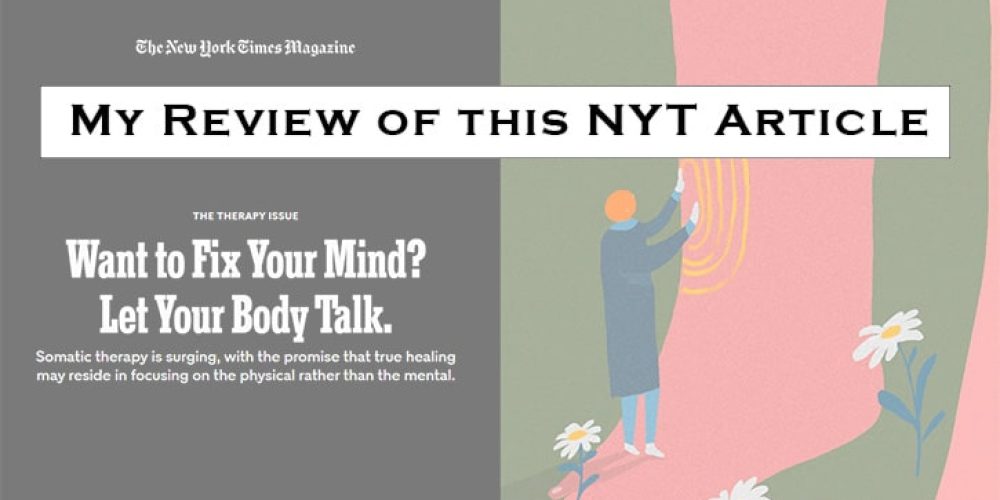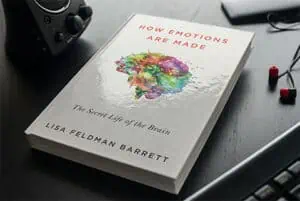Is There a Place for Mysticism in Body-Based Therapy?
Let’s unpack some utter nonsense I noticed in the New York Times article “Want to Fix Your Mind? Let Your Body Talk.”
First, some context. This article focuses on one version of body-based therapy called Somatic Experiencing®, or SE™.
According to founder Peter Levine, Somatic Experiencing® has been around for 30 to 40 years, but appears to have gotten super popular during the pandemic lockdowns. Since then, Somatic Experiencing® has continued to gain traction, in no small part due to the popularity of the book The Body Keeps the Score—which is itself also full of some downright nonsense in the form of outdated triune brain ideas.
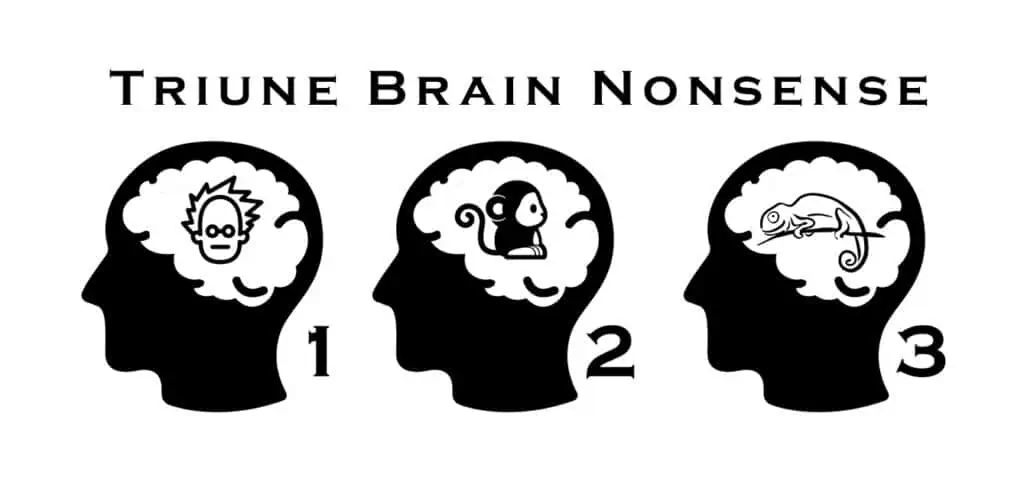
Now, don’t get me wrong: I don’t dislike the book.

The Body Keeps the Score has brought to light some very serious problems in the mental health and psychiatry systems. It’s raised massive awareness that the body has to be taken into consideration when resolving the aftermath of traumatic experiences.
Unfortunately though, throughout the book there’s reference to so-called rational vs. emotional brain functioning, which is not at all how the brain works; a fact that has been definitive in neuroscience for 30 years now.
But I digress.
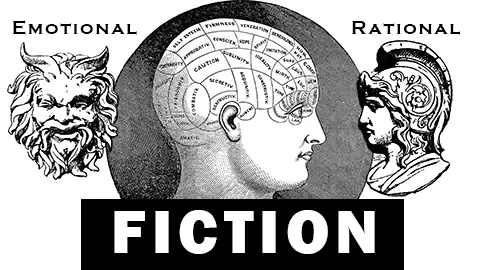
Doesn’t Somatic Experiencing® work?
As a body-based therapy practitioner, one would think I’d be super happy that body-based therapy is being featured in one of the nation’s biggest news outlets.
A rising tide lifts all boats, right?
Well, yes. On the one hand, it’s great to see body-based therapy finally getting the publicity it deserves. It’s about time, since it was developed by a colleague of Freud’s, named Wilhelm Reich in the 1920s.
SE™ does work
And yes, somatic experiencing does work—but not for the convoluted pseudoscientific reasons Peter Levine says it does.
So unfortunately, aside from bringing awareness of body-based therapy to masses of people who might not run across it otherwise, guess what’s also been brought to people’s awareness via this article?
…Oh, only that body-based therapy practitioners feel pushed by the public to engage in and emulate Peter Levine’s shamanic-style healing—and that Peter Levine is consciously promoting something that smacks of mysticism (even cultishness) as part of the scientific endeavor of psychotherapy.
That’s Not Even the Biggest Problem
To make matters worse, aside from the problems above, Somatic Experiencing® also leans on the falsified pseudoscience of the “polyvagal theory” for legitimacy. And as I’ve mentioned elsewhere, this “theory” quickly falls apart under the least bit of scientific scrutiny.
So you see, when the science you’re using to legitimize your method can’t withstand the most basic scrutiny…
When the author of the “polyvagal theory” says it “was not proposed to be either proven or falsified”…
When your “method” can’t be explained to your trainees or clients with precision…
What you end up with sounds a lot like a cult: complete with mysticism, shamanism, and a supreme leader who says, in essence, “I, and my spiritual wisdom, are why this works.”
What’s Wrong With Shamans and Mysticism?
Absolutely nothing.
Both can play an important role in many people’s healing. In fact, I believe that the value of mysticism and the wisdom of shamanism can’t be overstated. That’s especially true at times when faith is necessary to manage confusing or overwhelming situations that science can’t yet explain.
Shamans and mystics can be super valuable within contexts that don’t claim to be science-based.
Psychotherapy was developed by scientists using the latest data available at the time to explain how and why it worked. It logically follows, then, that we therapists of today should continue to use the most updated scientific data available to support our methods—not outdated science fictions about “emotional” and “rational” brains, and pseudoscience about a vagus nerve that coordinates a mythical “social engagement system.”
I mean, psychology already has an undeserved reputation as a “soft science.” Why make things worse by leaning heavily on undisputedly outdated science and well-known pseudoscience?
So, What’s the Right Science that Supports Body-Based Therapies?

In a nutshell: It’s the science of predictive brain function and its associated theory of constructed emotion.
With these, neither therapy (somatic or otherwise) nor your inner mental life is particularly mysterious or mystical. It’s all very simple to understand.
When you understand how your brain really works according to 21st century neuroscience, everything starts to make sense.
Nothing gets complicated by convoluted ideas. You don’t have to subscribe to anyone’s patented brand of Therapy Talk. You don’t have to believe in supposed hard-wired circuits in your brain or a faulty vagus nerve that you’re a helpless victim to.

The foundation of mental health is simple energy function, of which there are five levers you can manipulate to alter your mental experience.
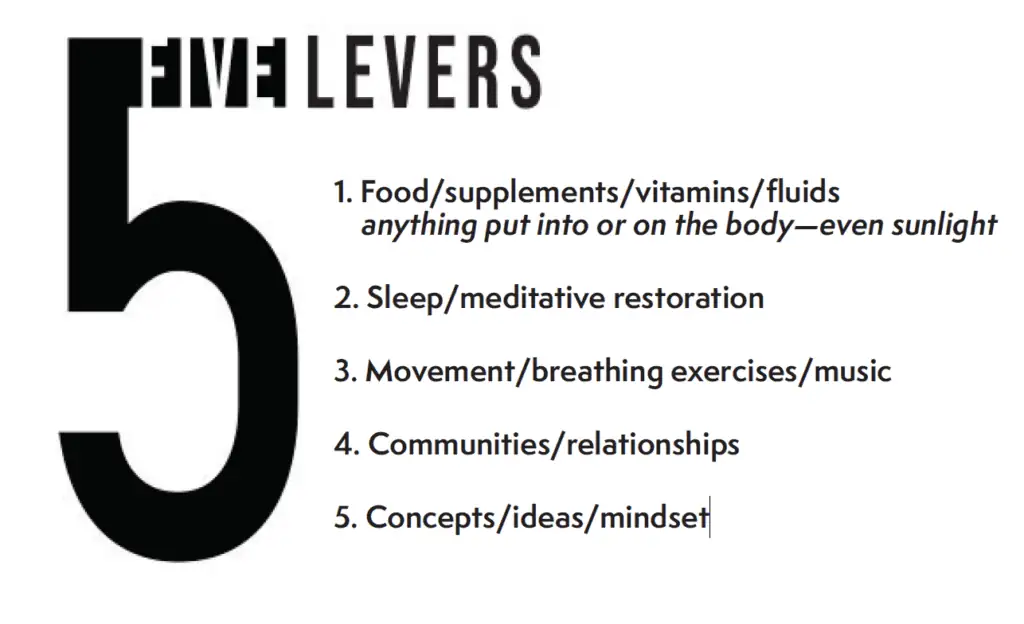
So Why Should I Care?
In the end, does it really matter if Peter Levine says that future healing modalities will be a combination of the scientific and the spiritual?
Not really.
To some degree, they already are — depending on how you personally define spirituality.
But to say that such a method is based on science rather than fanciful imaginings of a pseudoscientist…
To lean into mysticism because your pseudoscience is unable to support your method on a computational level…
Well, that’s irresponsible and exploitative.
It’s not therapy, and it’s not science.
It’s a cult.
If you’re interested in doing body-based psychotherapy using the most up-to-date neuroscience, give me a call. We’ll talk.


